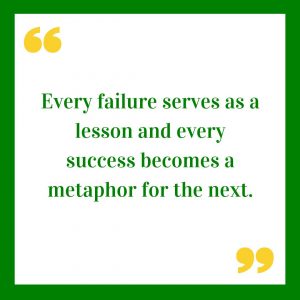4 Tips for College Students Managing Mental Health

College can be frustrating when you live with a mental health condition, but I am living proof that earning a degree while living with a mental health diagnosis is obtainable. Your college career may not look like your peers’ and it may take you more than four years, but it is an amazing journey and you will have built so much character and resilience when you finally get that beloved piece of paper. Here are four tips for college students managing a mental health condition:
1. Plan, Plan, Plan.
Benjamin Franklin said, “If you fail to plan, you are planning to fail.” When it comes to managing a mental health diagnosis and attending college, I couldn’t agree more. I didn’t learn to plan out every little detail of my schedule until I was a working adult enrolled in online classes, and managing bipolar. I feel as though if I had learned this as soon as I was diagnosed, it wouldn’t have taken me so long to finish. I have found that it is important to manage every assignment and appointment. From that dreaded English paper to your 4 o’clock session with your favorite therapist. I’ve learned to use different organizational tools to plan such as planners, note cards, sticky notes and of course, my beloved iPhone. Find your magic tools and get to planning! Stay at least one week ahead.
2. Take Advantage of the Resources at Your Institution.
I was away at school for a few years before I began to take advantage of the resources available on campus such as therapy and other mental health services. I struggled for a while before asking for help. Partly due to my pride and partly due to just plain ignorance, I had no idea that there were so many opportunities to get help. They vary by institution, but nowadays most campuses have some type of mental health services and or resources for students. If you’re like I was and find it challenging to ask for help, think of how much more time and energy you’ll have when your issues are being addressed and not looming over you. Think of how it will feel focus on your courses, personal projects and passions instead of focusing on how you feel stuck and unable to move forward.
3. Communicate with Your Instructors.
Contrary to popular opinion, your college professors are there for you. I know in high school and in other parts of society it is taught that your professors don’t care if you succeed. News flash: they do! That’s why it is important to build rapport with them and let them know what’s going on with you. They can’t help you if they don’t know what you’re dealing with. At some colleges, this is as easy as having your diagnosis documented or simply sending an e-mail at the beginning of the semester letting your professors know ahead of time while at other schools you have to be registered with some type of disability services office or other resource. It can be overwhelming, but simply communicating with your teachers goes a long way when you’re mid-semester and your symptoms arise.
4. Stay the Course, but Remain Realistic.
There were so many times that I wanted to quit and to be honest, there were times when I did give up, but something always pulled me back. I believe this something was my desire to complete what I had started and ultimately accomplish what I knew in my heart of hearts I could do. At times, I felt like taking on a full course load in order to speed up the process, but I had to be realistic and know that too much on my plate would not be beneficial mentally or academically. In staying the course, I learned to slow down and revel in small victories, such as successfully completing one or two courses per semester. Over time this built my confidence in my ability to finish. This pace was perfect for me and my lifestyle. I was on a realistic path to completing my degree and it worked!
You will get overwhelmed and want to quit. Some days you’ll have more doubt than desire to move forward. You will also have days when you feel on top of the world and unstoppable because you are working hard and killing every obstacle in your way. It’s all a part of the process. Every failure serves as a lesson and every success becomes a metaphor for the next.
Adapted from the blog post Degrees and Diagnoses: Four Ways to Get One While Living with the Other at kontentlykara.com